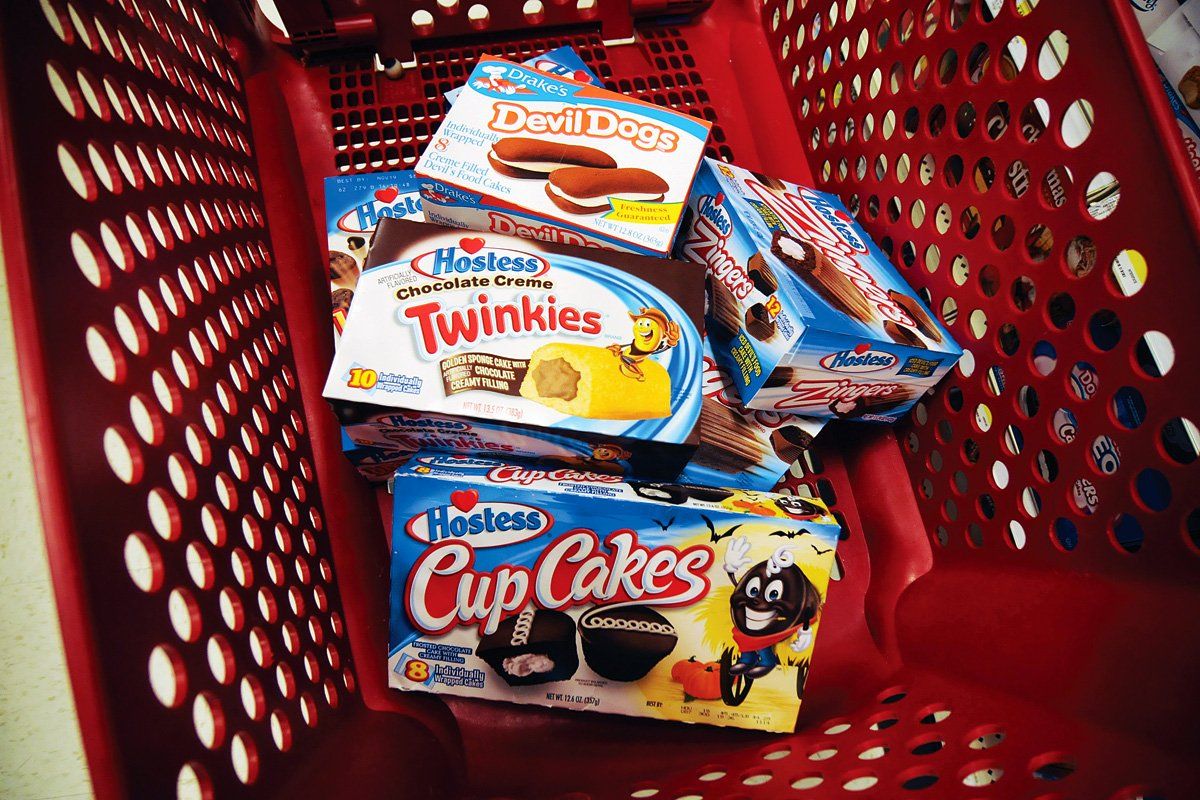
For anyone who remembers the days before schoolkids ate free-range chicken wraps and kale chips, reading the news Hostess Brands posted on its website Nov. 16 was like watching Howdy Doody get strangled: the 82-year-old company, which makes Wonder Bread, Twinkies, and other triumphs of American food engineering, would shut down immediately and ask a bankruptcy court to let it hold a fire sale on everything it owns.
The proximate cause? The Bakery, Confectionery, Tobacco Workers and Grain Millers International Union, which represents about 5,000 Hostess Brands workers, wouldn't sign off on the bankrupt company's latest reorganization plan and had gone on strike Nov. 12. Claiming that the company lacked "the financial resources to weather an extended nationwide strike," CEO Gregory F. Rayburn said in a statement that "Hostess Brands will move promptly to lay off most of its 18,500-member workforce and focus on selling its assets to the highest bidders."
At first blush, the brinksmanship over Twinkies—Twinksmanship?—was a case of junk bonds meeting junk food and producing a junky result. The parent company first went into Chapter 11 in 2004, where it stayed for more than four years before emerging under private-equity ownership. Rechristened Hostess Brands, it made a return trip to Chapter 11 in January 2012, laboring under a $700 million debt load.
The new owners—hedge funds that had purchased the company's debt—brought in Rayburn, who sought to cut employees' wages and reduce pension and 401(k) contributions. In exchange for concessions on work rules, benefits, and compensation, the unions were to receive a 25 percent stake in the company, board representation, and a $100 million IOU. Several unions, including the Teamsters, signed off. But the bakers held out.
Hostess Brands is a story of what happens when businesses—be they large companies or small firms—focus too much on financial engineering to the detriment of innovation. Hostess, Dolly Madison, Ho Hos, Sno Balls, Twinkies, Wonder Bread—all have a Proustian effect on consumers of a certain age.
But the product line didn't keep up with a change in the zeitgeist. "Now we are in midst of a food revolution focused on local, organic, artisanal, and authentic—the very antithesis of Twinkies," says Marion Nestle, a nutrition expert at New York University.
For many U.S. consumer brands, producing overseas, with local labor and for local tastes, has been a way to change their cost structure, to grow, and to cash in on the rapidly expanding consumer markets of China and India. Yet here again, Hostess was stuck with a 1950s worldview. Even though its products are loaded with preservatives, which means they can endure arduous travel to distant markets, Hostess does very little exporting.
The unwillingness or inability to update its business strategy and products for a changing world was more damaging to Hostess than the brief strike this month. A white-bread manufacturer that focuses solely on the U.S. market in 2012 is a little like a white-bread GOP candidate who focuses only on white voters in 2012.
Uncommon Knowledge
Newsweek is committed to challenging conventional wisdom and finding connections in the search for common ground.
Newsweek is committed to challenging conventional wisdom and finding connections in the search for common ground.





